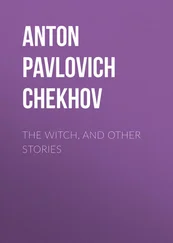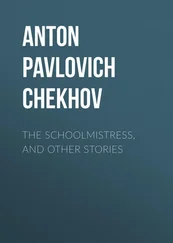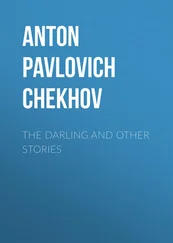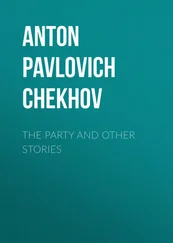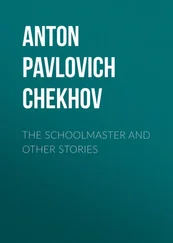Anton Chekhov - The Bishop and Other Stories
Здесь есть возможность читать онлайн «Anton Chekhov - The Bishop and Other Stories» весь текст электронной книги совершенно бесплатно (целиком полную версию без сокращений). В некоторых случаях можно слушать аудио, скачать через торрент в формате fb2 и присутствует краткое содержание. Жанр: Классическая проза, на английском языке. Описание произведения, (предисловие) а так же отзывы посетителей доступны на портале библиотеки ЛибКат.
- Название:The Bishop and Other Stories
- Автор:
- Жанр:
- Год:неизвестен
- ISBN:нет данных
- Рейтинг книги:3 / 5. Голосов: 1
-
Избранное:Добавить в избранное
- Отзывы:
-
Ваша оценка:
- 60
- 1
- 2
- 3
- 4
- 5
The Bishop and Other Stories: краткое содержание, описание и аннотация
Предлагаем к чтению аннотацию, описание, краткое содержание или предисловие (зависит от того, что написал сам автор книги «The Bishop and Other Stories»). Если вы не нашли необходимую информацию о книге — напишите в комментариях, мы постараемся отыскать её.
The Bishop and Other Stories — читать онлайн бесплатно полную книгу (весь текст) целиком
Ниже представлен текст книги, разбитый по страницам. Система сохранения места последней прочитанной страницы, позволяет с удобством читать онлайн бесплатно книгу «The Bishop and Other Stories», без необходимости каждый раз заново искать на чём Вы остановились. Поставьте закладку, и сможете в любой момент перейти на страницу, на которой закончили чтение.
Интервал:
Закладка:
"Take it, dearie," she said, giving Yegorushka the cake; "you have no mamma now-no one to give you nice things."
Yegorushka stuck the cake in his pocket and staggered to the door, as he could not go on breathing the foul, sour air in which the innkeeper and his wife lived. Going back to the big room, he settled himself more comfortably on the sofa and gave up trying to check his straying thoughts.
As soon as Kuzmitchov had finished counting out the notes he put them back into the bag. He did not treat them very respectfully and stuffed them into the dirty sack without ceremony, as indifferently as though they had not been money but waste paper.
Father Christopher was talking to Solomon.
"Well, Solomon the Wise!" he said, yawning and making the sign of the cross over his mouth. "How is business?"
"What sort of business are you talking about?" asked Solomon, and he looked as fiendish, as though it were a hint of some crime on his part.
"Oh, things in general. What are you doing?"
"What am I doing?" Solomon repeated, and he shrugged his shoulders. "The same as everyone else. . . . You see, I am a menial, I am my brother's servant; my brother's the servant of the visitors; the visitors are Varlamov's servants; and if I had ten millions, Varlamov would be my servant."
"Why would he be your servant?"
"Why, because there isn't a gentleman or millionaire who isn't ready to lick the hand of a scabby Jew for the sake of making a kopeck. Now, I am a scabby Jew and a beggar. Everybody looks at me as though I were a dog, but if I had money Varlamov would play the fool before me just as Moisey does before you."
Father Christopher and Kuzmitchov looked at each other. Neither of them understood Solomon. Kuzmitchov looked at him sternly and dryly, and asked:
"How can you compare yourself with Varlamov, you blockhead?"
"I am not such a fool as to put myself on a level with Varlamov," answered Solomon, looking sarcastically at the speaker. "Though Varlamov is a Russian, he is at heart a scabby Jew; money and gain are all he lives for, but I threw my money in the stove! I don't want money, or land, or sheep, and there is no need for people to be afraid of me and to take off their hats when I pass. So I am wiser than your Varlamov and more like a man!"
A little later Yegorushka, half asleep, heard Solomon in a hoarse hollow voice choked with hatred, in hurried stuttering phrases, talking about the Jews. At first he talked correctly in Russian, then he fell into the tone of a Jewish recitation, and began speaking as he had done at the fair with an exaggerated Jewish accent.
"Stop! . . ." Father Christopher said to him. "If you don't like your religion you had better change it, but to laugh at it is a sin; it is only the lowest of the low who will make fun of his religion."
"You don't understand," Solomon cut him short rudely. "I am talking of one thing and you are talking of something else. . . ."
"One can see you are a foolish fellow," sighed Father Christopher.
"I admonish you to the best of my ability, and you are angry. I
speak to you like an old man quietly, and you answer like a turkeycock:
'Bla-bla-bla!' You really are a queer fellow. . . ."
Moisey Moisevitch came in. He looked anxiously at Solomon and at his visitors, and again the skin on his face quivered nervously. Yegorushka shook his head and looked about him; he caught a passing glimpse of Solomon's face at the very moment when it was turned three-quarters towards him and when the shadow of his long nose divided his left cheek in half; the contemptuous smile mingled with that shadow; the gleaming sarcastic eyes, the haughty expression, and the whole plucked-looking little figure, dancing and doubling itself before Yegorushka's eyes, made him now not like a buffoon, but like something one sometimes dreams of, like an evil spirit.
"What a ferocious fellow you've got here, Moisey Moisevitch! God bless him!" said Father Christopher with a smile. "You ought to find him a place or a wife or something. . . . There's no knowing what to make of him. . . ."
Kuzmitchov frowned angrily. Moisey Moisevitch looked uneasily and inquiringly at his brother and the visitors again.
"Solomon, go away!" he said shortly. "Go away!" and he added something in Yiddish. Solomon gave an abrupt laugh and went out.
"What was it?" Moisey Moisevitch asked Father Christopher anxiously.
"He forgets himself," answered Kuzmitchov. "He's rude and thinks too much of himself."
"I knew it!" Moisey Moisevitch cried in horror, clasping his hands. "Oh dear, oh dear!" he muttered in a low voice. "Be so kind as to excuse it, and don't be angry. He is such a queer fellow, such a queer fellow! Oh dear, oh dear! He is my own brother, but I have never had anything but trouble from him. You know he's. . ."
Moisey Moisevitch crooked his finger by his forehead and went on:
"He is not in his right mind; . . . he's hopeless. And I don't know what I am to do with him! He cares for nobody, he respects nobody, and is afraid of nobody. . . . You know he laughs at everybody, he says silly things, speaks familiarly to anyone. You wouldn't believe it, Varlamov came here one day and Solomon said such things to him that he gave us both a taste of his whip. . . . But why whip me? Was it my fault? God has robbed him of his wits, so it is God's will, and how am I to blame?"
Ten minutes passed and Moisey Moisevitch was still muttering in an undertone and sighing:
"He does not sleep at night, and is always thinking and thinking and thinking, and what he is thinking about God only knows. If you go to him at night he is angry and laughs. He doesn't like me either . . . . And there is nothing he wants! When our father died he left us each six thousand roubles. I bought myself an inn, married, and now I have children; and he burnt all his money in the stove. Such a pity, such a pity! Why burn it? If he didn't want it he could give it to me, but why burn it?"
Suddenly the swing-door creaked and the floor shook under footsteps. Yegorushka felt a draught of cold air, and it seemed to him as though some big black bird had passed by him and had fluttered its wings close in his face. He opened his eyes. . . . His uncle was standing by the sofa with his sack in his hands ready for departure; Father Christopher, holding his broad-brimmed top-hat, was bowing to someone and smiling-not his usual soft kindly smile, but a respectful forced smile which did not suit his face at all-while Moisey Moisevitch looked as though his body had been broken into three parts, and he were balancing and doing his utmost not to drop to pieces. Only Solomon stood in the corner with his arms folded, as though nothing had happened, and smiled contemptuously as before.
"Your Excellency must excuse us for not being tidy," moaned Moisey Moisevitch with the agonizingly sweet smile, taking no more notice of Kuzmitchov or Father Christopher, but swaying his whole person so as to avoid dropping to pieces. "We are plain folks, your Excellency."
Yegorushka rubbed his eyes. In the middle of the room there really was standing an Excellency, in the form of a young plump and very beautiful woman in a black dress and a straw hat. Before Yegorushka had time to examine her features the image of the solitary graceful poplar he had seen that day on the hill for some reason came into his mind.
"Has Varlamov been here to-day?" a woman's voice inquired.
"No, your Excellency," said Moisey Moisevitch.
"If you see him to-morrow, ask him to come and see me for a minute."
All at once, quite unexpectedly, Yegorushka saw half an inch from his eyes velvety black eyebrows, big brown eyes, delicate feminine cheeks with dimples, from which smiles seemed radiating all over the face like sunbeams. There was a glorious scent.
Читать дальшеИнтервал:
Закладка:
Похожие книги на «The Bishop and Other Stories»
Представляем Вашему вниманию похожие книги на «The Bishop and Other Stories» списком для выбора. Мы отобрали схожую по названию и смыслу литературу в надежде предоставить читателям больше вариантов отыскать новые, интересные, ещё непрочитанные произведения.
Обсуждение, отзывы о книге «The Bishop and Other Stories» и просто собственные мнения читателей. Оставьте ваши комментарии, напишите, что Вы думаете о произведении, его смысле или главных героях. Укажите что конкретно понравилось, а что нет, и почему Вы так считаете.





